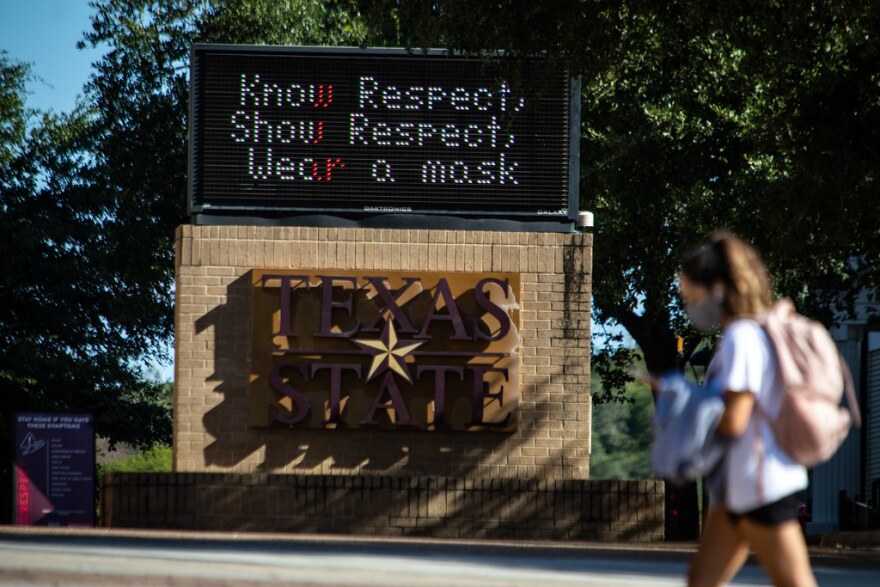Active COVID-19 cases in Hays County are on a steady decline, but there’s one age group still seeing small spikes in cases.
“We are seeing quite a few cases that are popping up here in San Marcos, especially in the 18-, 25-year-old age range, which does have a lot to do with our Texas State population here in San Marcos,” epidemiologist Eric Schneider said at a news conference Wednesday. “We want to make sure that our college students are being smart. I know you're wearing your mask. I know you’re social distancing. But when you're off campus, you need to continue those practices.”
Texas State University started conducting some in-person classes again in late August. The school has its own contact tracing system and team, as well as its own COVID-19 dashboard.
Schneider also said there are more active cases in Hays County than in Travis County, despite major population differences, because Hays doesn’t automatically clear active cases after 14-20 days. Instead, the county keeps people listed as active cases until someone from the health department can contact them to confirm they’re better.
“I noticed many times that someone would get positive, and then their spouse would show symptoms ... and then their child would show symptoms. ... And before you know it, that disease was in that household for over almost a month,” Schneider said. “We want to reach out to them to make sure that everybody in the household is symptom-free and that everybody is feeling good before we say ‘OK, you're cleared ... and safe to go back into society.’”
For a small health department, he said, keeping up with active cases has been a challenge. Through federal grants, the county made several hires to help with contact tracing and data entry.
“That's why you have seen our active caseload dropped tremendously in the last couple of weeks,” Schneider said. “Because we're able to make more phone calls per day and reach out and talk to everyone.”
With flu and allergy season quickly approaching, Schneider said to be mindful that many of the symptoms for the flu and allergies mimic those of COVID-19. He encouraged residents to get a flu shot.
"We just want people to understand that this hasn't gone away and it's not going away anytime soon,” Schneider said. “Just be aware and be mindful that every step that you do to help prevent yourself from getting this disease also helps prevent spreading it to anybody else.”
Got a tip? Email Riane Roldan at rroldan@kut.org. Follow her on Twitter @RianeRoldan.
If you found the reporting above valuable, please consider making a donation to support it. Your gift pays for everything you find on KUT.org. Thanks for donating today.





